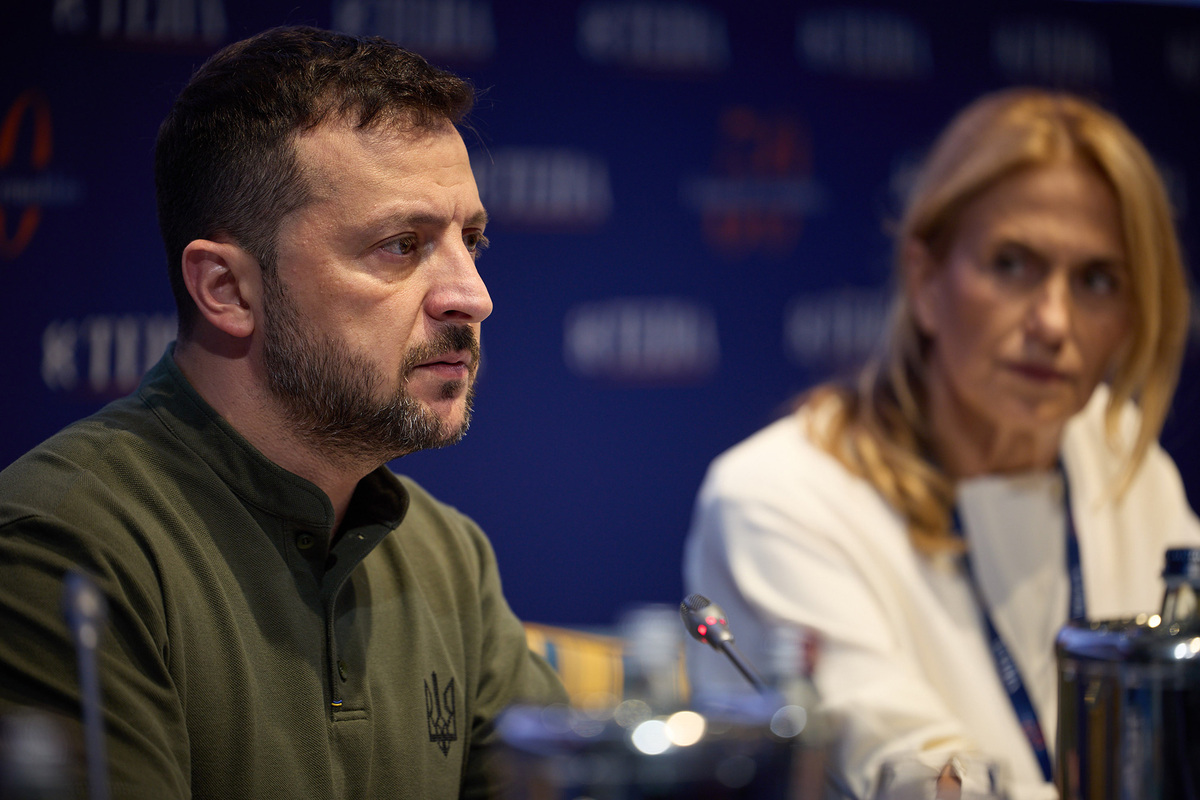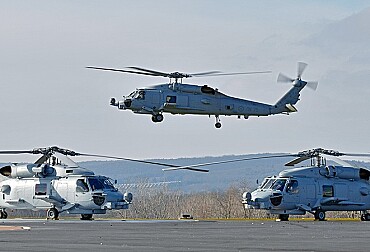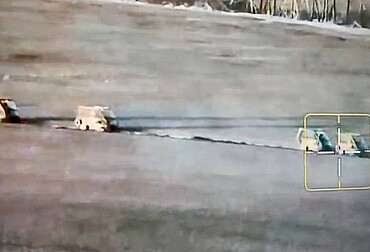Zelensky asks for long-range missiles to get Russia to negotiate peace
Ukrainian President Volodymyr Zelensky, during his visit at the Ramstein air base, asked allies to supply long-range missiles as well as beef up air defences, which, according to him, would force Moscow to seek peace. The new appeal comes at a time of intensified Russian attacks on Ukrainian cities, which have killed dozens of people in the past week. Meanwhile, Commander-in-Chief of Ukraine's Armed Forces, announced that in the direction of Pokrovsk in the Donetsk region, the Ukrainians had succeeded in halting the Russian advance. In addition, the news comes at a time when Iran has reportedly delivered its short-range ballistic missiles to Russia, increasing the likelihood of continued Russian strikes in the coming weeks.

Top U.S. military officials, along with NATO allies, met again at Ramstein Air Base in Germany as part of the Ukraine Defence Contact Group, where they were again urged by their Ukrainian counterparts to strengthen and expand arms deliveries to defend against Russian aggression. The meeting took place on Friday, at the end of a bloody week in Ukraine, when a series of Russian attacks, for example, killed 50 cadets in Poltava, 7 residents in Lviv and a strike by five ballistic missiles injured around 50 people in Pavlohrad. The Ukrainian President is thus calling for new ways to defend against these insidious attacks - including with long-range missiles capable of striking hundreds of kilometres beyond the Ukrainian-Russian border.
"We need to have this long-range capability not only on the divided territory of Ukraine, but also on Russian territory so that Russia is motivated to pursue peace," Zelensky told the contact group, according to Time magazine. "We have to make Russian cities and even Russian soldiers think about what they need - whether peace or Putin," Zelensky added.
Western support for the supply of medium- and long-range missiles has gradually evolved over more than two and a half years of war, as it has for tanks and aircraft, for example. However, even for already approved deliveries, such as tanks or fighter jets, the process is slow and Ukraine is receiving individual pieces of equipment gradually and in small batches. The United States, which has long been reluctant to provide assets for strikes on Russian territory, quietly sent ATACMS missile systems in April that are capable of hitting targets up to 185 miles (300 km) away. These systems are used by the Ukrainians to strike Russian bases near the front, to which the Russians have already responded by moving most of their heavy equipment, such as aircraft, helicopters and, from the Black Sea, ships, further out of range of these US missiles.
"One of the things that President Zelensky and his ministers have made very clear to us is that they are suffering from extensive attacks from air bases and military facilities located in Russia. We support their request for permission (to supply long-range missiles), but it's still a decision for our allies," Canadian Defense Minister Bill Blair, who is supportive of the Ukrainian request, responded, according to Time. Volodymyr Zelensky then added on the matter that the promised deliveries of advanced air defense assets, which play a vital role in defending against Russian airstrikes, are also tied up.
These attacks intensified after the Ukrainian invasion of Kursk, as did the Russian army's offensive in the Donetsk region in the direction of Vuhledar and especially Pokrovsk. As regards the latter, which is within sight of Russian positions and where a large-scale evacuation of thousands of residents has been under way for several weeks, the Ukrainians are reporting good news for the first time in some time. According to Oleksandr Syrsky, the commander of the Ukrainian armed forces, the Russian advance in the area has stopped. "Over the past six days, the enemy has not advanced even one meter towards Pokrovsk. In other words, our strategy is working," Syrskyy told CNN. "We have taken away their ability to maneuver and deploy their reinforcements from other directions. And this weakening was definitely felt in other areas," the Ukrainian general added.
The Kursk operation, as the recent Ukrainian foray into Russian territory is commonly called, was also a success, according to Syrsky. "It reduced the threat of an enemy offensive. We prevented them from taking action. We moved the fighting into enemy territory so that the enemy would feel what we feel every day," the Ukrainian general said.
However, these optimistic reports were quickly followed by more bad news for the Ukrainians, as Iran, which has long supplied Russia with a number of Shahid suicide drones and reportedly other types of missiles, has also reportedly supplied the Russians with new short-range ballistic missiles. These should be 200 Fath-360 missiles with a range of up to 74.5 miles (120 km) and Ababil missiles with a range of less than 56 miles (90 km). There have been reports that Iran has supplied Russia with Fathih-110 or Zolfaghar missiles, but so far there has been no evidence of the Russians deploying these Iranian missiles even once on the Ukrainian battlefield.
"We have been warning about the deepening security partnership between Russia and Iran since the beginning of the Russian invasion of Ukraine and are concerned by these reports," White House spokesman Sean Savett commented on the information about the alleged Iranian missile shipments. "Any transfer of Iranian ballistic missiles to Russia would represent a dramatic escalation of Iran's support for Russia's offensive war against Ukraine," the US administration official added.








